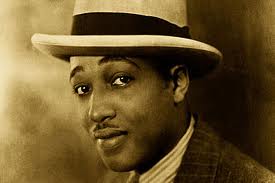…there are definitely worse places than Sarasota in January. This is the view from our hotel room:

Archives for 2011
TT: What I do for love (and money)
 Mrs. T are packing our bags this morning on Florida’s Sanibel Island. I won’t soon forget what a blissful time we’ve had there, but if anything can put our happiness out of my mind, however temporarily, it’s my schedule for the next seven days, which is more than a little bit crazy.
Mrs. T are packing our bags this morning on Florida’s Sanibel Island. I won’t soon forget what a blissful time we’ve had there, but if anything can put our happiness out of my mind, however temporarily, it’s my schedule for the next seven days, which is more than a little bit crazy.
Later today we’ll drive north to Sarasota to spend a few days catching up with Asolo Rep, whose revival of Bertolt Brecht’s Life of Galileo made my Wall Street Journal best-of-2010 list. Unfortunately, there’s a catch, which is that I have to drop Mrs. T off in Sarasota this afternoon and fly north to New York so that I can see two plays there on Wednesday, The Importance of Being Earnest and Other Desert Cities. Then I’ll fly back down to Sarasota to see Asolo’s Twelve Angry Men–and then I’ll fly back up to Philadelphia to attend a pair of staged workshop performances on Saturday and Sunday of Danse Russe, my new opera. I’ll also be catching a play in Philly, the Arden Theatre revival of Eugene O’Neill’s A Moon for the Misbegotten. The craziness is over a week from today, when I return to Florida and begin my latest residency at Rollins College’s Winter Park Institute. Whew!
In case you’re wondering, I’ve been watching the weather, and it looks like I’m going to get into New York tonight before the snow starts in earnest. My hope is that by the time I’m supposed to leave, the runways will be clear and I can fly back down to Florida without incident. We’ll see–and so will you. In the meantime, don’t expect to hear much of anything from me other than travel updates! This is, to put it mildly, one of those weeks….
P.S. The blizzard caught me–my flight to New York has already been canceled. We’ll see how the rest of the week turns out!
TT: Almanac
“Bureaucracy forms a truly supranational freemasonry, with the same quirks, the same incalculable workings of the mind, and the same lack of logic.”
Joseph Szigeti, With Strings Attached: Reminiscences and Reflections
TT: Landmark
I’ve spent the past week on Florida’s Sanibel Island working on Black Beauty: A Life of Duke Ellington. Yesterday morning I finished writing the second chapter, in which I describe the first eighteen years of Ellington’s life. Here are the last two paragraphs. I hope you like them!
* * *
 The patterns of Duke Ellington’s life and personality were now firmly set, and they looked quite a bit like the complicated shape of life on U Street, the neighborhood in Washington, D.C., where he grew up. The hours he had spent rubbing shoulders with ragtime pianists, Pullman porters, petty thieves, and card sharps in Frank Holliday’s poolroom had introduced him to a way of living far removed from the middle-class world into which he had been born. To the end of his life he recalled with undiminished relish the lessons he learned there: “Interns used to come in, who could cure colds. And handwriting experts who would enjoy copying somebody’s signature on a check, go out and cash it, and bring back the money to show the cats in the poolroom what artists they were. They didn’t need the money. They did it for the kicks. There were also a couple of pickpockets around, so smooth that when they went to New York they were not allowed in the subway. At heart, they were all great artists.”
The patterns of Duke Ellington’s life and personality were now firmly set, and they looked quite a bit like the complicated shape of life on U Street, the neighborhood in Washington, D.C., where he grew up. The hours he had spent rubbing shoulders with ragtime pianists, Pullman porters, petty thieves, and card sharps in Frank Holliday’s poolroom had introduced him to a way of living far removed from the middle-class world into which he had been born. To the end of his life he recalled with undiminished relish the lessons he learned there: “Interns used to come in, who could cure colds. And handwriting experts who would enjoy copying somebody’s signature on a check, go out and cash it, and bring back the money to show the cats in the poolroom what artists they were. They didn’t need the money. They did it for the kicks. There were also a couple of pickpockets around, so smooth that when they went to New York they were not allowed in the subway. At heart, they were all great artists.”
Yet Ellington would never turn his back on the other lessons in life that he had learned from J.E., Daisy, and their genteel neighbors. He regarded them as equally valid, just as he learned as much from listening to “the schooled musicians who had been to the conservatory” as he did from the untrained pianists whose homemade methods he emulated: “Everybody seemed to get something out of the other’s playing–the ear cats loved what the schooled guys did, and the schooled guys, with fascination, would try what the ear cats were doing.” It did not occur to him that his own elegant carriage was inconsistent with his racial identity, any more than that the authenticity of his music might somehow be compromised by its urbanity. That, he knew, bespoke a constrictingly narrow notion of “blackness.” Throughout his life he delighted in pointing out that Harlem “has always had more churches than cabarets,” and the composer of Black, Brown and Beige needed no one to remind him that black people came in all shades. “Once I asked him what he considered a typical Negro piece among his compositions,” a white friend recalled. “He paused a moment before he came up with ‘In a Sentimental Mood.’ I protested a bit and said I thought that was a very sophisticated white kind of song and people were usually surprised when they learned it was by him. ‘Ah,’ he said, ‘that’s because you don’t know what it’s like to be a Negro.'”
Never did he harbor the slightest doubt of his own knowledge of what it was like to be a Negro, or his ability to turn that knowledge into music that gave voice to his people’s anguish–and aspiration.
TT: Just because
Miles Davis and the Gil Evans Orchestra play Dave Brubeck’s “The Duke”:
TT: Almanac
“Warming up before a concert is like doing breathing exercises before dying.”
Gregor Piatigorsky (quoted in Leon Fleisher and Anne Midgette, My Nine Lives: A Memoir of Many Careers in Music)
TT: Just because
Hadda Brooks sings “I Hadn’t Anyone Till You” in Nicholas Ray’s “In a Lonely Place”:
TT: Tune in tomorrow
I’ll be making my debut tomorrow night on CUNY-TV’s Theater Talk, accompanied by fellow drama critics John Simon and Jacques le Sourd. We’ll be talking with Michael Riedel of the New York Post about the best and worst Broadway shows of 2010. Bombs will be thrown!
For more information, or to view the episode on line, go here.
